Journey Into the Mind of an
TERRORIST
MARK A. GABRIEL, PhD



Dedicated to George W. Bush, the president of the United States; Tony Blair, the prime minister of Great Britain; the American and British military; the coalition in Iraq and Afghanistan; the new Iraqi military that was born in the midst of the fire; the CIA and the FBI; the law enforcement agencies in the world's civilized countries who are fighting together in the war against Islamic terrorism; and the American and British people who are standing behind their powerful leaders.
CONTENTS
............................................... xi
SECTION 1: A WALL BETWEEN BROTHERS
................................. 1
......................... 7
SECTION 2: THE ISLAMIC GREAT AWAKENING
........................................ 19
....................................... 29
........................................ 39
...................................... 43
SECTION 3: THE FIVE PILLARS OF RADICAL ISLAMIC PHILOSOPHY
...................... 65
....................... 81
............ 89
.............. 95
SECTION 4: WARNING ABOUT DECEIT
...... 117
........ 123
SECTION 5: FOLLOWING MUHAMMAD'S FOOTSTEPS
............................ 129
.................... 137
SECTION 6: HOPE FOR THE FUTURE
.................. 153
....... 169
.................. 175
........ 181
.................. 187
.................. 205
............... 212
................. 219
PREFACE
 his is my fourth book in five years on the topic of Islam, and my purpose for each one is to expose the facts about Islam to the Western reader. Over the course of these years, I have had an opportunity to see how people respond to my message. To be honest, at times I have been disappointed, particularly when people become belligerent and aggressive toward Muslims. So before you even begin reading, I would like to take the opportunity to challenge some misconceptions about my position.
his is my fourth book in five years on the topic of Islam, and my purpose for each one is to expose the facts about Islam to the Western reader. Over the course of these years, I have had an opportunity to see how people respond to my message. To be honest, at times I have been disappointed, particularly when people become belligerent and aggressive toward Muslims. So before you even begin reading, I would like to take the opportunity to challenge some misconceptions about my position.
First of all, I do not hate Muslims. I grew up as a Muslim in Egypt, and all of my family is still Muslim. (Incidentally, I no longer use my Muslim name in order to prevent radicals from harassing my family because of my writing.) I love the Muslim people. But I am not happy with the teachings of Islam because of the suffering they have caused the people of the Muslim world.
Here is my main point: people can learn to make a separation in their minds between the Muslim people and the teachings of Islam. A person can love and respect the Muslim people even if he rejects the teachings of Islam.
Second, I am not trying to say that all Muslims are radicals who secretly or openly want to kill every "infidel" (non-Muslim) they meet. That is ridiculous. The fact is that only a tiny percentage of Muslims are radical. All the other Muslims can be described as moderate, secular, traditional, or orthodox. They don't agree with the radicals at all. In fact, they are furious with them for making their lives difficult.
Third, having knowledge about Islam does not give anyone permission to insult Muslims. The purpose of my writing is not to make you hate Muslims, but to arm you with information about Islam so that as a citizen you can support the best course of action to protect your society.
Fourth, I do not want to vilify or dehumanize the Islamic radicals in your eyes. On the contrary, I hope you can see them as unique human beings whose defining characteristic is a desire to be true to the teachings of Islam. They are dangerous now, but they were not born evil. Perhaps this is easy for me to remember because I grew up as a Muslim in Egypt during the 1960s and 1970s. Everyone my age knew of a friend or relative who joined a radical group and, as a result, ruined his life.
Finally, I want to say thank you for picking up this book. Not many people take the time to find out the truth about Islam for themselves. They would rather spend thirty minutes watching someone on television tell them what to think. By reading this book, you will be able to look at the facts and draw your own conclusions. People like you make up a small percentage of society, but you will make a great impact. By understanding the mind of the Islamic terrorist, you will be able to support public policy that will stop their violence.
And there is another way you can help to stop the violence also. I believe that this book is an excellent support tool for all public officials involved in anti-terrorist work. I recommend that you give a copy of this book to your local law enforcement officers-sheriffs, policemen, local security officers involved in anti-terrorism work, and so on. You may even want to present a copy to some of your local government officials as your thank you for their work in keeping you and your family safe from the violence of terrorism.
INTRODUCTION
 any excellent writers can tell you in great detail about who, what, where, when, and how Islamic radicals are operating all around the world. They can describe political and economic conditions that are helping to create more radicals, but they often fall short of explaining the radicals' motives. In other words, you have received a lot of information about what radicals are doing. I am going to answer the question many westerners have asked: Why are they doing this?
any excellent writers can tell you in great detail about who, what, where, when, and how Islamic radicals are operating all around the world. They can describe political and economic conditions that are helping to create more radicals, but they often fall short of explaining the radicals' motives. In other words, you have received a lot of information about what radicals are doing. I am going to answer the question many westerners have asked: Why are they doing this?
I am going to answer that question from the point of view of a "religious radical." In other words, I acknowledge that radicals and terrorists also have political, economic, social, or psychological motives, but I am going to focus on the religious motive, which is the most powerful and the most dangerous factor. It is also the most ignored and misunderstood factor in the world media, so I believe I can make a useful contribution by focusing on it.
To journey inside the mind of a religious radical, we can read what the radical writers have left for us. Writings by some authors, such as Sayyid Qutb or Abul ala Mawdudi, are easily available in English. But other writings are still only available in Arabic, and even then they can be difficult to find. Sometimes academic people read them and discuss them, but the information rarely is packaged in a form that the public can use. In fact, most Arabic-speaking people have not seen these documents either.
My analysis of radical philosophy draws heavily from these hardto-find documents. I think this book's most important contribution to the public debate is allowing more people to see the source material of radical thought.
I want you to have a deep understanding of radical thinking; therefore, this book gives you more than just a summary of their writings. I describe the modern roots of Islamic radicalism and the backgrounds of the key writers before I describe their writings. Afterward, I show you the source of their philosophy by telling you how Muhammad practiced jihad, drawing from my doctorate degree in Islamic history and culture from Al-Azhar University in Cairo. Finally, the book ends on a note of hope because I believe there are ways to control radicalism and restore peace between Islam and the rest of the world.

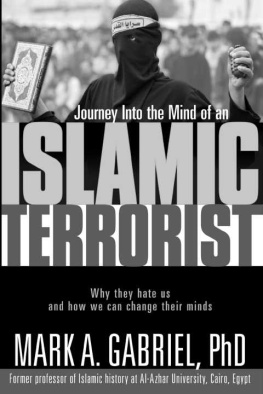
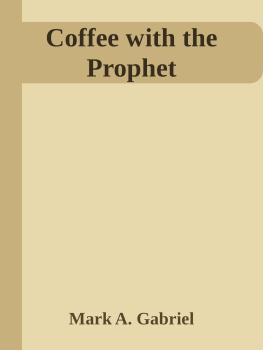
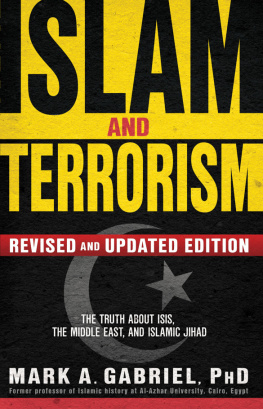

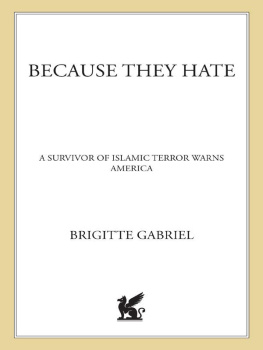
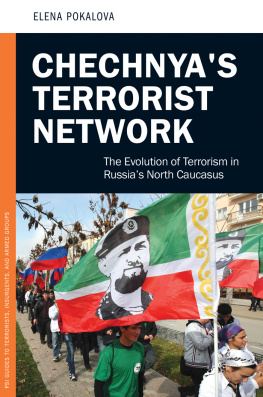
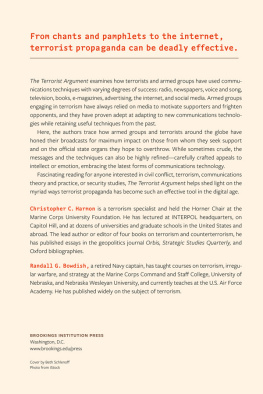
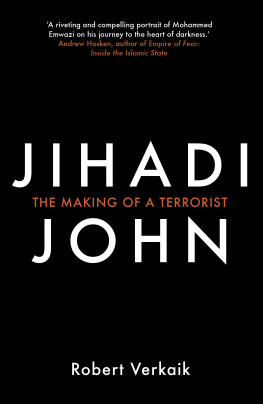
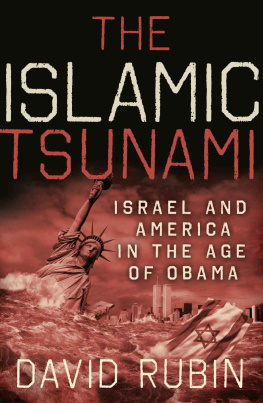
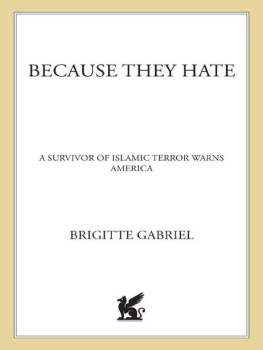


 his is my fourth book in five years on the topic of Islam, and my purpose for each one is to expose the facts about Islam to the Western reader. Over the course of these years, I have had an opportunity to see how people respond to my message. To be honest, at times I have been disappointed, particularly when people become belligerent and aggressive toward Muslims. So before you even begin reading, I would like to take the opportunity to challenge some misconceptions about my position.
his is my fourth book in five years on the topic of Islam, and my purpose for each one is to expose the facts about Islam to the Western reader. Over the course of these years, I have had an opportunity to see how people respond to my message. To be honest, at times I have been disappointed, particularly when people become belligerent and aggressive toward Muslims. So before you even begin reading, I would like to take the opportunity to challenge some misconceptions about my position. any excellent writers can tell you in great detail about who, what, where, when, and how Islamic radicals are operating all around the world. They can describe political and economic conditions that are helping to create more radicals, but they often fall short of explaining the radicals' motives. In other words, you have received a lot of information about what radicals are doing. I am going to answer the question many westerners have asked: Why are they doing this?
any excellent writers can tell you in great detail about who, what, where, when, and how Islamic radicals are operating all around the world. They can describe political and economic conditions that are helping to create more radicals, but they often fall short of explaining the radicals' motives. In other words, you have received a lot of information about what radicals are doing. I am going to answer the question many westerners have asked: Why are they doing this?